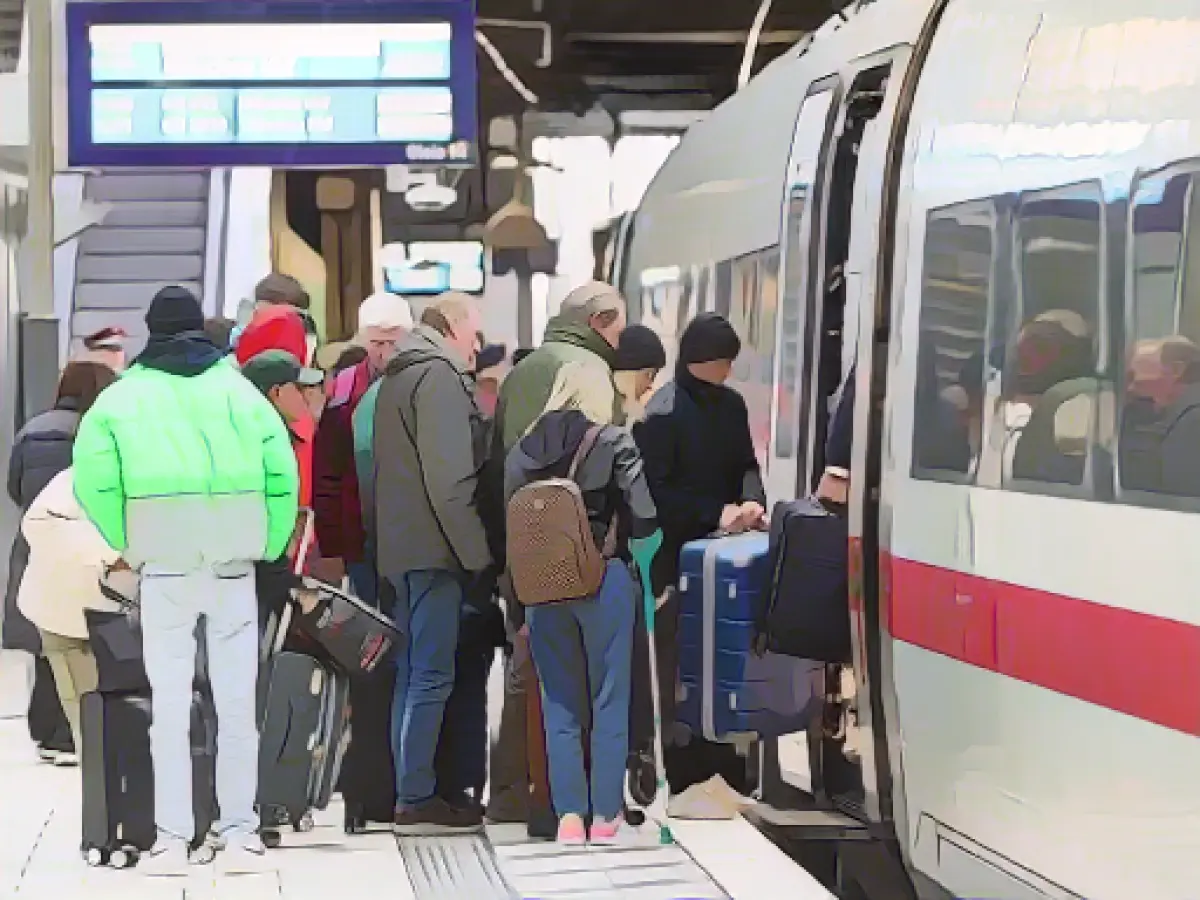Rail: Traffic running again almost without restrictions
Following the 20-hour warning strike by the German Train Drivers' Union (GDL), rail traffic in Germany has largely been running smoothly again since the early hours of the morning.
"Long-distance and regional trains have been running according to the regular timetable again almost everywhere since the start of operations in the early hours of the morning," the railroad announced. The warning strike ended at 6 p.m. on Thursday evening. Nevertheless, it took a few hours for rail operations to fully resume. Train cancellations and delays were also reported in the evening and on Friday night.
Freight traffic: effects of the strike felt for longer
On the other hand, the effects of the industrial action are likely to be felt a little longer in freight transport. It could take several days for the congestion of hundreds of freight trains caused by the industrial action to be cleared, the railroad company had already announced before the end of the warning strike. Nevertheless, it drew a positive conclusion after the warning strike: the emergency timetable had worked reliably. In some cases, it had even been possible to offer more regional and S-Bahn services than originally planned.
With the 20-hour warning strike, the GDL tried to increase the pressure early on in the ongoing wage negotiations with Deutsche Bahn. Among other things, the union is demanding an increase of 555 euros per week and an inflation adjustment bonus for a period of twelve months. The sticking point, however, is the demand for a reduction in working hours for shift workers from 38 to 35 hours per week with full wage compensation. Deutsche Bahn rejects this as unachievable.
The first round of negotiations ended last week without any substantive agreement. The next meeting was planned for this Thursday and Friday. However, Deutsche Bahn canceled the meeting after the GDL announced a warning strike. The next round is scheduled for the end of next week in Berlin. It was initially unclear whether this would take place.
- The tariff dispute between the GDL and German Railways led to a warning strike, causing disruptions in both passenger and freight traffic.
- Despite the end of the 20-hour warning strike, tariff-related issues remain unresolved, affecting the possibility of reducing working hours for shift workers from 38 to 35 hours per week with full wage compensation.
- The ongoing tariff dispute between the GDL and German Railways could potentially lead to further disruptions in rail traffic, particularly in freight transport, due to the accumulated impact of previous strikes.
Source: www.dpa.com








